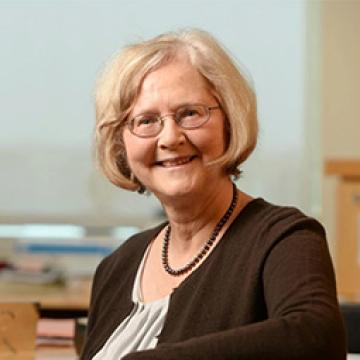Dr. Elizabeth Blackburn won the Nobel Prize in Physiology or Medicine in 2009 for discovering the molecular nature of telomeres, the ends of chromosomes that serve as protective caps essential for preserving genetic information, and for co-discovering telomerase, an enzyme that maintains telomere ends. In addition to the Nobel Prize, Blackburn has received nearly every major award in science, including the Lasker, Gruber and Gairdner prizes. She was named to the TIME 100 in 2007, the magazine’s yearly list of the most influential people in the world.
Blackburn has shown an abiding commitment to public service in the scientific, academic and public policy arenas. She has served as president of both the American Association of Cancer Research and the American Society for Cell Biology, and has served on the editorial boards of several scientific journals, including the influential journals Cell and Science. She was also a member of the President’s Council of Bioethics, an advisory committee to the President of the United States. Blackburn was born in the small city of Hobart in Tasmania, Australia, to a family of doctors and scientists. Inspired by her fascination with animals and a biography of the iconic French scientist Marie Curie, Blackburn chose to also pursue a career in science. Dr. Blackburn earned her B.Sc. and M.Sc. degrees from the University of Melbourne, her Ph.D. from the University of Cambridge in England and was a postdoctoral fellow at Yale University.

